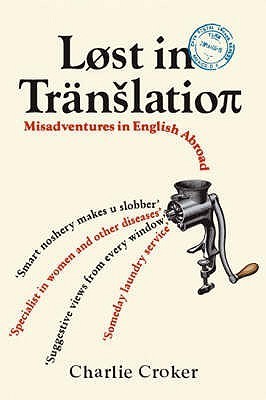
Lost In Translation: Misadventures in English Abroad
Book Description
Words can bridge cultures or create chaos. In "Lost In Translation: Misadventures in English Abroad," Charlie Croker plunges into the hilarious and often chaotic encounters of a traveler navigating the quirks of language in foreign lands. From misunderstood phrases that spark laughter to moments that turn into cultural faux pas, this journey reveals the thin line between connection and confusion. As Croker faces unexpected challenges and builds unlikely friendships, each twist leads to startling revelations about communication and identity. Will the power of language unite us, or will it leave us lost in a world of mismatched meanings?
Quick Book Summary
"Lost In Translation: Misadventures in English Abroad" by Charlie Croker is a witty exploration of the comedic pitfalls and cultural surprises encountered when English-speaking travelers communicate across linguistic boundaries. Through real-life anecdotes, Croker showcases how mistranslated signs, literal interpretations, and cultural misunderstandings can generate laughter and awkwardness in equal measure. The book emphasizes not only the humor within these scenarios but also the deeper insights they offer into identity, mutual understanding, and the universal struggle to connect with others. With light-hearted storytelling and keen observation, Croker invites readers to reflect on the unpredictable, sometimes absurd, yet ultimately humanizing power of language in our globally connected world.
Summary of Key Ideas
Table of Contents
Humor in Linguistic Missteps
From the bustle of international airports to tucked-away street markets, Charlie Croker’s journey is defined by humorous encounters born from English’s unpredictable spread across the globe. Whether deciphering restaurant menus promising odd delicacies or unraveling hotel warnings that bewilder more than they help, Croker exposes how efforts to communicate in English can result in memorable, often comical scenarios. This journey is not about mocking mistakes, but relishing the creativity and inventiveness with which people grapple with a global language.
Bridging (and Breaking) Cultural Barriers
As each tale unfolds, cultural differences emerge as both obstacles and opportunities. Croker encounters polite confusion in one country, boisterous laughter in another, finding that linguistic errors can smooth over or escalate cultural barriers. His stories reveal how humor serves as a crucial bridge, transforming embarrassment into camaraderie. Misunderstood phrases become icebreakers for conversation, shared jokes, and sometimes the foundation for lasting friendships that render travel unforgettable.
The Universality of Misunderstanding
The universal nature of misunderstanding forms a recurring theme throughout the book. No traveler is immune to moments of confusion, nor is any culture spared from linguistic oddities. Croker shows how errors in translation highlight our shared humanity, reminding us that all people, regardless of background, grapple with the nuances of language. This shared struggle, far from dividing us, fosters empathy and resilience when navigating unfamiliar worlds.
Finding Connection Through Confusion
Despite the chaos that miscommunication can cause, the book ultimately celebrates connection. Croker’s experiences underscore how, even when words fail, gestures, laughter, and good intentions can bridge the widest linguistic gaps. He's quick to note that meaningful relationships can blossom amidst confusion when both sides are open and willing to laugh at the absurdity of it all. Often, misunderstanding provides the spark for genuine mutual understanding.
Language, Identity, and Perspective
Hidden within these humorous tales lies a deeper reflection on identity and perception. The absurdities and failures of translation challenge Croker to see himself and others from new perspectives, aware of the ways language shapes how we view the world—and each other. The book concludes that far from being a flawless tool, language is a wonderfully flawed instrument that binds us together by revealing, rather than hiding, our commonalities as much as our differences.
Download This Summary
Get a free PDF of this summary instantly — no email required.





